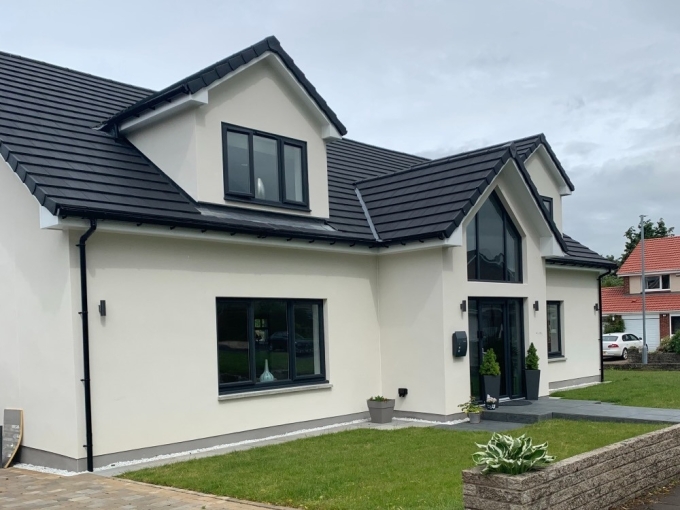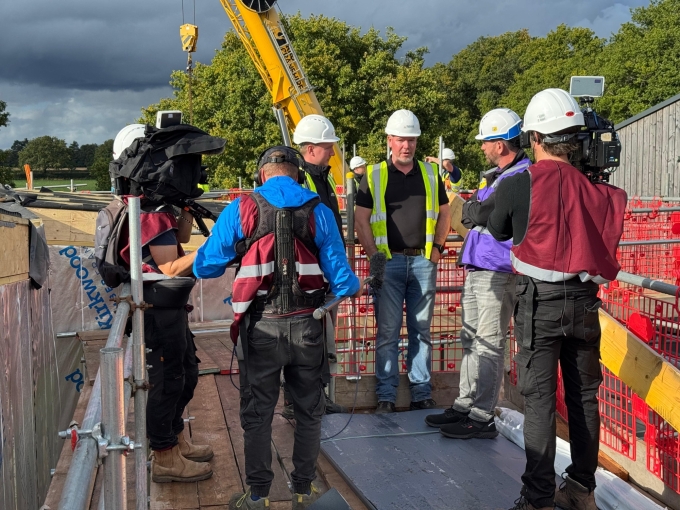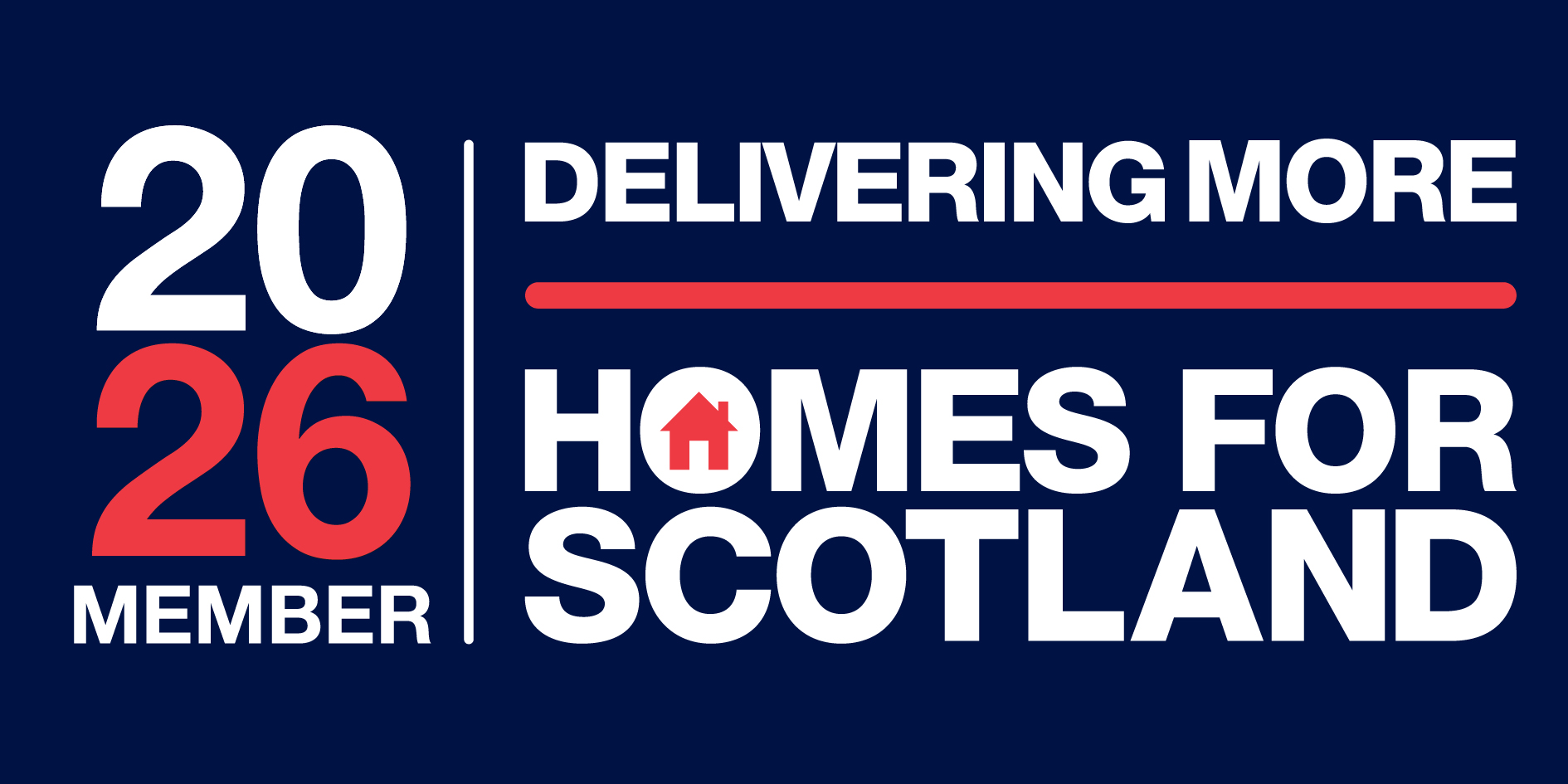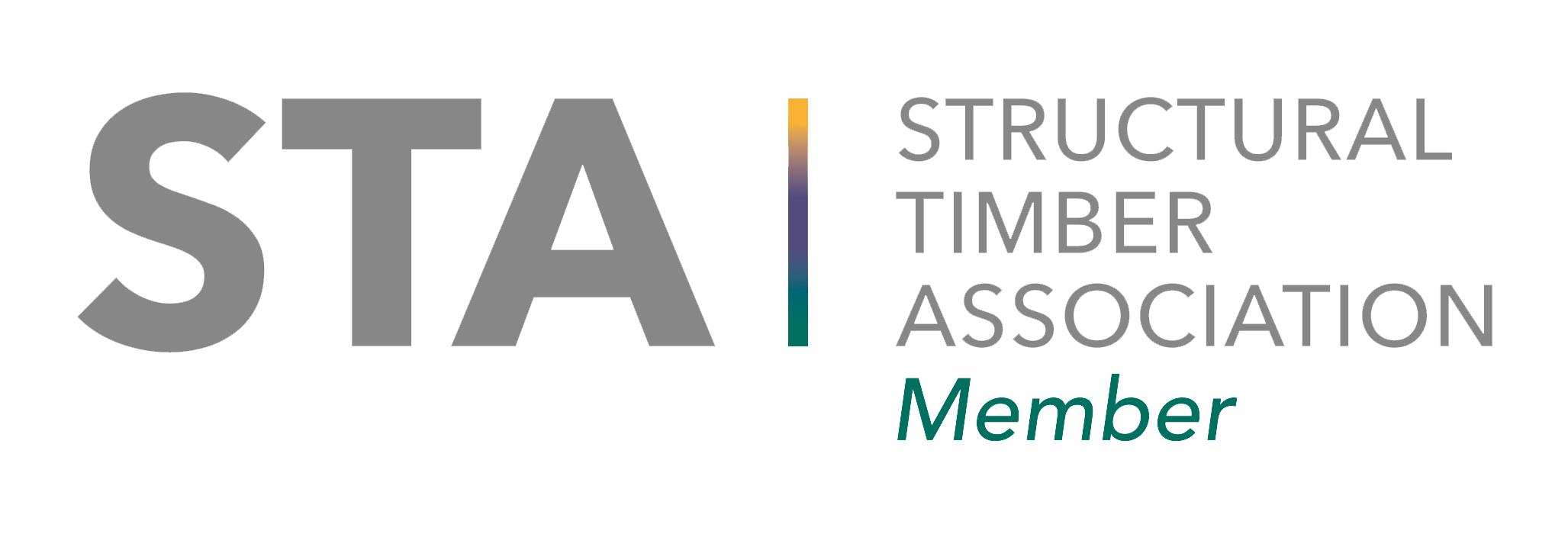Timber frame is quickly becoming the go-to choice for builders and developers, from small local companies to large national firms. Four out of the top five developers across the country have embraced timber frame construction, with many choosing to invest in their own timber frame operations, as it’s a sustainable, efficient, and high-quality material.
In this blog post, our Business Development Manager, Andy Lewis, discusses the benefits timber frame construction offers builders and developers, and why it’s the ideal choice for your next project…
Using timber frame can save you money through a faster build process
“Although the material cost of timber frame compared to brick is pretty similar, in an industry where time is money, timber frame is an invaluable resource for builders and developers. Through off-site manufacturing and taking brickwork off the critical path, timber frame offers more flexibility in the build phase and can actually reduce the customer programme by as much as 40 to 50 percent, which unlocks a number of benefits and cost savings in the process.
“Traditional builders and developers are well versed in expenses such as material content, preliminaries and labour content, but can overlook the financial gain of completing projects sooner. By finishing a property or development quicker, developers can spend less overall on preliminaries and on-site expenses - plus they can sell their units earlier, which improves the cash flow and gets the money back in the bank sooner.
“Since the building process is faster, developers can also control the unit they're building more easily. For instance, the roof can be on and the building can be made watertight at an earlier stage, which effectively reduces the risk of exposure to the UK’s unpredictable weather! This helps to minimise potential delays and damage, offering even more time and cost savings.”

Timber frame creates higher quality homes
“Another advantage of timber frame construction lies in the elevated level of quality it brings to the table. For instance, the precision involved in timber frame manufacturing and construction ensures that everything is exact, which is massively easier for first and second fix fit-out compared to masonry - plus it removes the need for tracing out for services, which means a smoother, more streamlined build.
“Quality control over the structural kit is another aspect where timber frame construction truly shines. Since it’s manufactured within controlled factory conditions, there’s greater precision through the use of automated machinery and state-of-the-art design software which removes the risk of human error.
“As a result, builders and developers build kits that fit together seamlessly on-site, making the whole process seamless and guaranteeing a high quality build. This level of precision and quality also means that timber frame construction not only meets but often exceeds the highest industry standards, allowing builders and developers to benefit from an enhanced reputation and fewer callbacks from their customers.”

Timber frame is more environmentally friendly and energy efficient
“Another huge advantage of timber frame construction is that it’s a renewable and sustainable resource with excellent energy efficient properties compared to masonry. This means developers and builders can make a conscious choice for sustainability and the move towards a net zero future, which a lot of modern day consumers and home buyers now expect.
“A timber frame home can lock in, or sequester, up to 0.9 tonnes of CO2 per cubic metre, making it CO2 negative. There are more trees grown each year than are felled - a process referred to as 'net annual increment’. Plus, environmentally-friendly cladding options are easily available to complement the nature of the build and offer increased flexibility for builders and developers to create sustainable homes for their customers.
“Unlike traditional construction methods that rely heavily on materials extracted from the ground, such as concrete, aggregate, sand, and cement, timber frame construction requires timber for its structure. Since timber frame is prefabricated, this contributes to reducing traffic movements during construction, which also means less CO2 emissions, less congestion, and less noise pollution. Not only that, using timber frame leads to less site-generated waste being produced and less extensive foundations compared to their masonry counterparts, reducing the overall environmental impact of the build process.”

Using timber frame ensures regulatory compliance
“In today’s world, building regulations are focusing more and more on energy efficiency and sustainability, which has already forced many builders and developers to re-evaluate their construction methods and switch to timber frame in order to keep up. By using timber frame, developers have the flexibility to build to a higher standard than currently required, so their construction practices shouldn’t need to drastically change as Building Regulations evolve and become stricter.
“Compared to traditional masonry construction, timber frame design flexibility makes it easier for builders and developers to meet and surpass 'Part L' - a section of the UK Building Regulations that focuses on conservation of fuel and power in buildings. This covers aspects such as insulation, heating efficiency, and lighting design to reduce carbon emissions and promote energy efficiency.
“The use of timber allows for conventional wall thicknesses without the need for wide cavities to accommodate insulation. It also easily adapts to a variety of bolt-on technologies such as photovoltaics and heat pumps, offering additional ways to enhance energy efficiency for the end user. But most importantly, the 'fabric first' approach in timber frame construction - where energy efficiency comes from the building's structure itself - offers a 'fit and forget' philosophy that is easy for builders and developers to adopt.”









